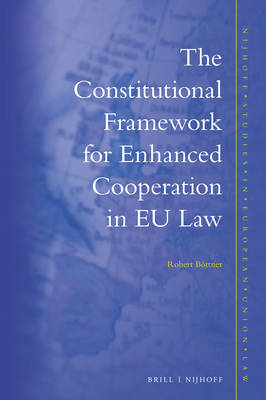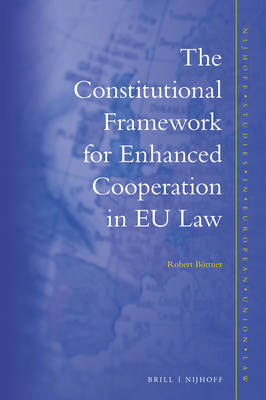
- Afhalen na 1 uur in een winkel met voorraad
- Gratis thuislevering in België vanaf € 30
- Ruim aanbod met 7 miljoen producten
- Afhalen na 1 uur in een winkel met voorraad
- Gratis thuislevering in België vanaf € 30
- Ruim aanbod met 7 miljoen producten
Zoeken
The Constitutional Framework for Enhanced Cooperation in EU Law
Robert Böttner
€ 354,45
+ 708 punten
Omschrijving
Enhanced Cooperation allows a group of Member States to use the EU's competences and institutions to pursue a project within the Union's framework that is binding only on the participating States while remaining an EU act. Introduced by the Amsterdam Treaty, this tool of flexible integration was not used until 2010. In The Constitutional Framework for Enhanced Cooperation in EU Law, Robert Böttner analyses the primary-law framework of this flexibility tool. On the basis of profound literature review and against the background of recent Member State practice, the author redefines the constitutional rules of Enhanced Cooperation. He draws conclusions on this tool's legal limits, but also its potential for European integration.
Specificaties
Betrokkenen
- Auteur(s):
- Uitgeverij:
Inhoud
- Aantal bladzijden:
- 410
- Taal:
- Engels
- Reeks:
- Reeksnummer:
- nr. 17
Eigenschappen
- Productcode (EAN):
- 9789004459168
- Verschijningsdatum:
- 18/02/2021
- Uitvoering:
- Hardcover
- Formaat:
- Genaaid
- Afmetingen:
- 155 mm x 235 mm
- Gewicht:
- 807 g

Alleen bij Standaard Boekhandel
+ 708 punten op je klantenkaart van Standaard Boekhandel
Beoordelingen
We publiceren alleen reviews die voldoen aan de voorwaarden voor reviews. Bekijk onze voorwaarden voor reviews.








